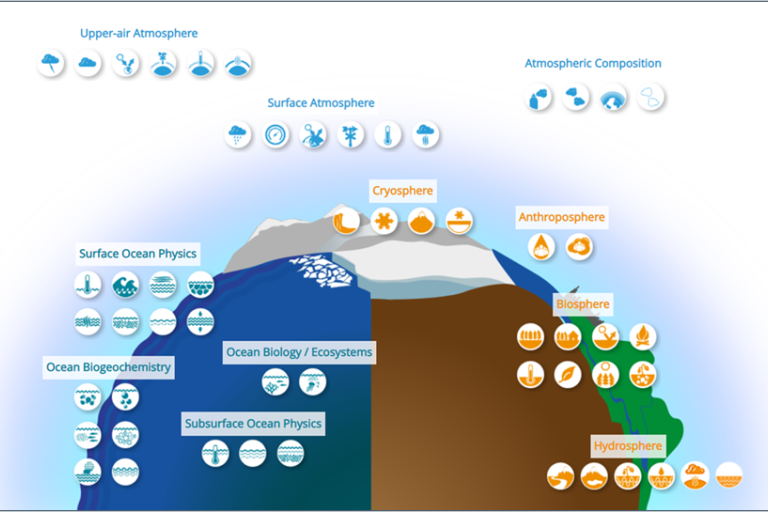Call for Review of Essential Climate Variable

The Global Climate Observing System (GCOS) Programme has been defining Essential Climate Variable (ECV) since the late 1990s when the term was coined. Several realizations lie behind the identification of ECVs: (1) we cannot understand what we do not observe, and we cannot observe what we cannot measure; (2) we do not have capacity to measure everything; (3) we probably do not need to measure everything! Now, an updated set of ECVs has been developed and GCOS is calling for reviewers.
In the last two decades GCOS experts have been defining what needed to be measured following three guiding principles:
- An ECV must reflect a critical and sustainable global observation necessary to monitor, understand, or predict climate change, with scientifically established methods for measurement
- The data related to the ECV must be archived, curated, and made accessible, leveraging existing historical datasets where applicable
- The measurable quantity/ies related to the ECV should form the baseline set of data required to describe the Earth's climate and its evolution.
The responsibility of GCOS experts is not only in determining which variables can be considered essential and which not. They must also curate them to establish the observational requirements. For example, they must determine with which spatial and temporal resolution each needs to be measured, and which is their timeliness and uncertainty. The ECV framework they have created has guided research and policy investments, and helped establish standards and practices for monitoring and data management: many climate observation networks and observing communities are built around ECVs.
When GCOS first developed the ECVs in the late 1990s, their list of essential variables was relatively small. Over time, the list has evolved to reflect advancements in both observing systems and the complexity of climate monitoring and process understanding.
As part of an ongoing review, key questions have emerged:
- Are all 55 current ECVs still relevant?
- Is the current categorization of ECVs optimal?
- Are the ECVs consistent across the different domains?
- Are the processes for adding or changing ECVs transparent and coherent?
In 2024, the GCOS Steering Committee established an ECV Rationalization Task Team to conduct a comprehensive review of ECVs and their governance, with a goal to finalize a revised set of ECVs by 2028. After a draft revision of the ECVs was proposed by the ECV Rationalization Task Team, key stakeholders, including two National Meteorological and Hydrological Services (NMHS) were then interviewed in third quarter of 2024 to gather initial feedback. Now, an updated set of ECVs has been developed that are undergoing an open, formal review.
It is crucial that the new set of ECVs reflect the essential set of observations that are needed to monitor our changing climate. As GCOS moves forward through this process, your input is needed to ensure that the process is robust and well-informed. Everyone is welcome to register to be a reviewer.
The Public Review was launched in May and will be open until 8 September.


